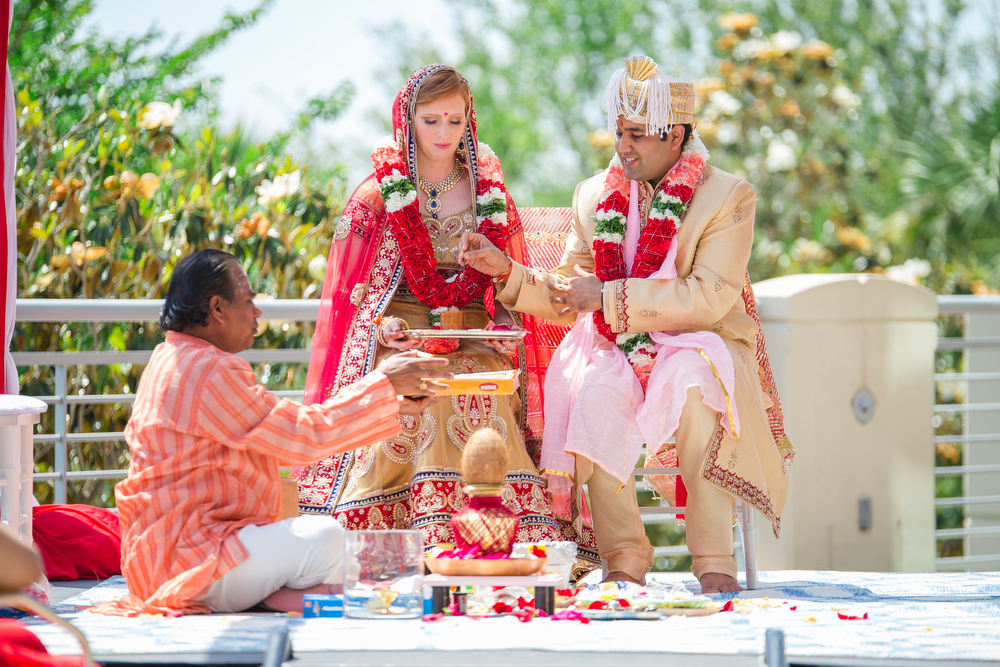Local Religious Places of Interest

Photo credit: Steven Hyatt
Caption: Ceiling of St. Mary of the Annunciation, the first Catholic Church in the Carolinas (1789). This is one of the many Churches of Charleston that can be visited in the "Holy City."
One of the most exciting components about studying in Charleston is learning how to study religion "on the ground" as a facet of daily life by engaging in fieldwork and participant observation. Some of the most exciting research being done in the study of religion today is the analysis of how immigrant religious communities adapt to the American landscape, interact with it and contribute to a new formulation of American identity. The study of religion is now one of the disciplines most vital to understanding the development of American pluralism and issues of diversity. The pioneering scholar of religion, Ninian Smart, often remarked that it is no longer necessary to travel to exotic locations to study world religons; they are now down the block. Nowhere is this phenomenon more true than in Charleston. Indeed, on Glebe Street one will find the Department of Religious Studies located next to the Jewish Studies Center and across from Grace Episcopal Church (founded 1846) and Mount Zion African Methodist Episcopal (A.M.E.) Church (founded 1847). Charleston is thus an ideal place to learn about local religious history and to engage in fieldwork, and the current faculty encourages students to explore projects in the Charleston community.
If you are interested in Christianity, Judaism or Islam, you can review materials that would enhance your own contact with a local synagogue, mosque or church and guide you in becoming a more observant participant in local festivals or ceremonies. Those interested in Asian religions will find ethnographic materials that wil help them to appreciate local groups such as the Buddhist community at the Charleston Tibetan Society, or they might arrange a visit to the Hindu temple in Columbia, South Carolina. Local Native American pow-wows are held in nearby Summerville, and Yoruba festivals and ritual ceremonies take place in Oyotunji African village near Beaufort. Students may study religion in the day-to-day life of a religious practitioner through film, video, music and other media that document the multifaceted reality of religious life. In this way, students gain a more direct impression of the ways in which religion permeates ordinary communal life, whether in the South Carolina Lowcountry or in another country. Engaging in fieldwork and ethnography also prepares students to visit other cultures and immerse themselves in the study of diverse religions, thereby gaining insights into the religious worlds of others.
- Central Mosque of Charleston (Charleston, SC)
- Churches of Charleston A Photographic View of The Holy City by Steven Hyatt
- Circular Congregational Church (Charleston, SC)
- Columbia Zen Buddhist Priory (Columbia, SC)
- Emanuel A.M.E. Church (Charleston, SC)
- First Baptist Church of Charleston (Charleston, SC)
- Greek Orthodox Church of the Holy Trinity (Charleston, SC)
- Gullah Sea Island Culture and Religion (Charleston, SC)
- Hindu Temple in Charleston (Charleston, SC)
- Hindu Temple in Columbia (Columbia, SC)
- Huguenot Society of South Carolina (Charleston, SC)
- Kahal Kadosh Beth Elohim, (Charleston, SC--the birthplace of reform Judaism)
- Meher Baba Hindu Spiritual Center (Myrtle Beach, SC)
- Mepkin Abbey Trappist Monastery (Moncks Corner, SC)
- Old St. Andrew's Parish (Charleston, SC)
- Oyotunji African Village (Sheldon, SC)
- The Penn Center (St. Helena Island, SC)
- St. Mary's Roman Catholic Church (Charleston, SC)
Hindu wedding ceremony in Mt. Pleasant photo credit: Priscilla Thomas; class of 2007







